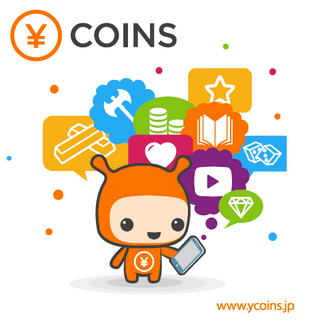Mobile services cloud company Infobip has launched ¥Coins (pronounced Yen Coins), a virtual currency for Japanese mobile users. The online tokens are intended to help international companies break into a market that is often described as “insular” by serving as a mobile payments gateway. Japanese mobile users will be able to purchase ¥Coins through direct operator billing, top-up scratch cards sold in brick-and-mortar stores or online with credit cards.
Japan is a potentially lucrative growth market for app developers. As of September, smartphone penetration was 41.7%, a number that is expected to jump to 60.2% in 2014, according to eMarketer. Apple’s iOS currently has a slightly bigger market share than Android, at 49.2% versus 45.8% of sales.
But despite the rapid adoption of smartphones, there are many hurdles for international companies that want to enter Japan. ¥Coins seek to help developers overcome those challenges by serving as a turnkey solution for international companies.
Due to market requirements and commercial law, a local business presence (such as a representative office or subsidiary company) is required in order to start a paid content service. Infobip’s local entity in Japan allows foreign developers to overcome regulatory hurdles. Infobip claims it is the first international payments provider to offer virtual currency to companies without a presence in Japan.
“There are other payment options in Japan, but they are typically limited to Japanese companies operating within Japan,” says Paolo Rizzardini, Infobip’s vice president of mobile payments. “Our challenge was to open that market for international companies that want to monetize in Japan.”
Since Bitcoin have been the center of so much attention recently, people might be curious about the difference between them and YCoins.
As Rizzardini explains it, “YCoins are a virtual currency associated to Yen value 1 to 1, this guarantee the Japanese users about the value of the currency during the time and avoid the value fluctuation typical of Bitcoin that is a must for each merchant that has to be sure about the amount they will receive.”
He adds that unlike Bitcoin, Ycoins cannot be exchanged or sold among end users. They can only be used to purchase games and services among Infobip’s approved partners.
“All of this is done to maximize end-user experience, security for both end user and partners and to guarantee the respect of the Japanese regulations. From an Infobip prospective and independently from the concept and the bright present of YCoins, we see Bitcoins as a potential payment options and we are following closely the recent facts around it,” says Rizzardini.
Many Japanese consumers still use featurephones, and their access to content is heavily controlled by mobile operators. As more people purchase smartphones and gain access to app stores, however, that lessens the power of carriers and gives mobile users more options.
Infobip plans to gain traction for ¥Coins by offering special deals for consumers (it has already announced developer partnerships with Top Eleven, a popular virtual soccer club, and online media affiliate network MGCash). In addition to ¥Coins, Infobip will also offer localization and marketing consulting to help international companies tackle the significant challenge of competing against well-established local players.
“Companies are not just looking for a payments provider or a payments gateway. They are also looking for expertise,” says Rizzardini.
He adds that in the long-term, Infobip also hopes to hold promotions with mobile carriers. For example, NTT DOCOMO could potentially promote a game with exclusive offers for ¥Coins users.
